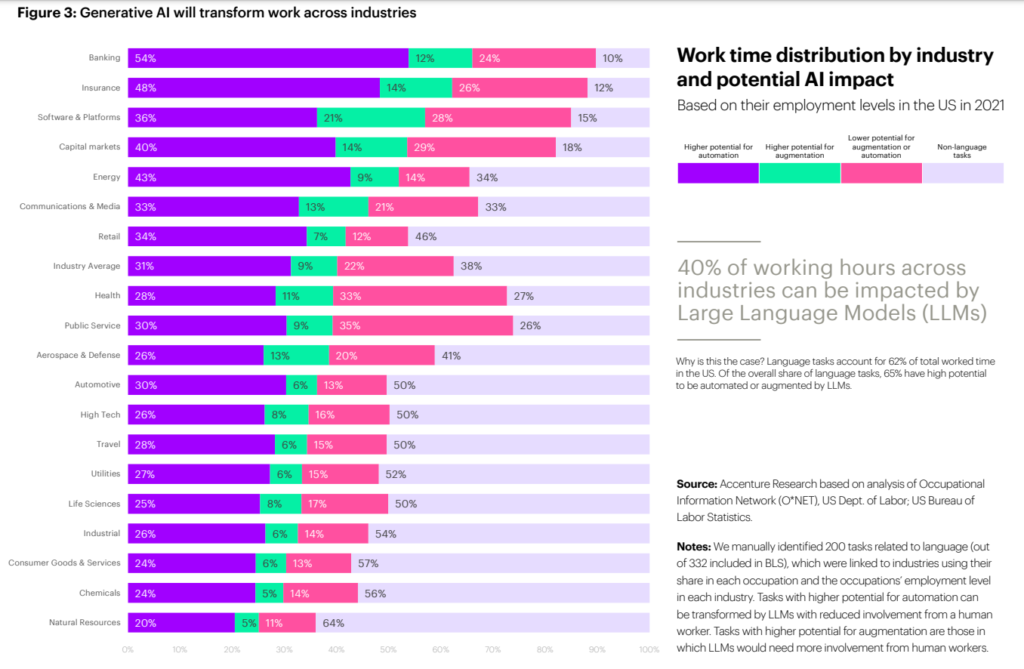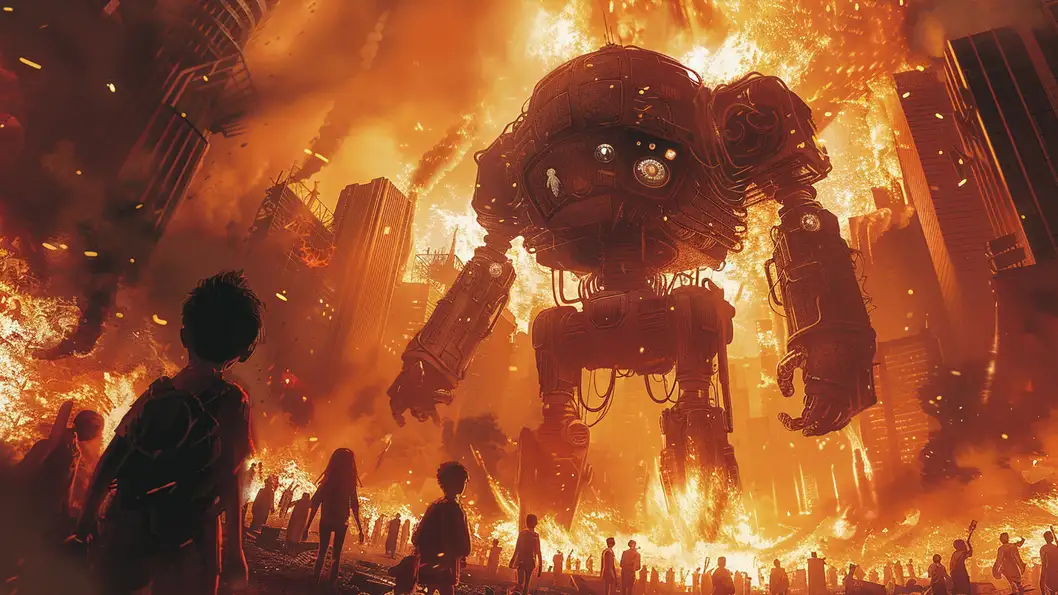The looming impact of artificial intelligence (AI) on the global workforce has ignited significant concern and debate. According to Goldman Sachs, as many as 300 million jobs worldwide could be affected by AI automation, heralding a seismic shift in labor markets across various industries. This staggering figure underscores the dual-edged nature of technological advancement: while AI has the potential to augment productivity and economic growth, it also poses a substantial threat to traditional employment structures.
The Hollywood industry, known for its glitz and glamour, is not immune to these technological disruptions. Actors, writers, and those involved in post-production and visual effects are particularly at risk. The advent of AI in creating realistic digital humans and automating tasks traditionally performed by humans threatens to upend the industry. This is not an isolated concern; similar apprehensions are echoed across other sectors, including farming and corporate America, where automation could lead to significant job losses and transformation of work.
Interestingly, the Goldman Sachs report highlights that office and administrative support jobs in the United States are among the most susceptible to automation, with a significant portion of their workload (25-50%) potentially replaceable by AI. Other highly vulnerable sectors include the legal industry, architecture and engineering, and the life, physical, and social sciences sector. On the other end of the spectrum, jobs involving building, ground cleaning, and maintenance, as well as installation, maintenance, and repair work, show relatively low susceptibility to AI disruption.
The conversation around AI’s impact on jobs is nuanced. It’s crucial to recognize that while AI presents a threat to certain jobs, it also holds the promise of creating new employment opportunities and enhancing productivity. The challenge lies in navigating this transition, ensuring that the workforce is equipped with the skills necessary to thrive in an increasingly automated world. As some countries advocate for older populations to seek reeducation, the global community must consider strategies for inclusive growth that address the disparities AI may exacerbate.
For a deeper understanding of how AI could reshape the labor landscape across different industries, including specific impacts on Hollywood and beyond, I recommend exploring the full articles provided by sources like Finance Yahoo, CTV News, and others that delve into Goldman Sachs’ findings and the broader implications of AI on employment.
And it could eventually increase the total annual value of goods and services produced globally by 7%. The report also predicts two-thirds of jobs in the U.S. and Europe “are exposed to some degree of AI automation,” and around a quarter of all jobs could be performed by AI entirely.
MARK TALMAGE-ROSTRON, NEXTFORD UNIVERSITY (SOURCE)
In the shadow of AI’s expansive growth, the entertainment industry stands at a pivotal juncture. While many jobs across various sectors face the impact of automation, the creative realms, particularly in Hollywood and related industries, are navigating a unique set of challenges and transformations.
Entertainment Industry Jobs Affected by AI:
- Actors and Digital Replication: AI’s ability to create hyper-realistic digital humans poses a direct threat to actors, especially for roles that can be digitally replicated without the need for physical presence.
- Screenwriters: AI’s prowess in generating scripts and creative content can impact screenwriters. While the core creative spark may still necessitate a human touch, AI can generate drafts, suggest edits, and provide alternatives at a pace and volume that far exceed human capability.
- Post-production: This encompasses a broad range of tasks from editing to visual effects (VFX). AI can drastically reduce the time and cost associated with post-production by automating repetitive tasks, analyzing and editing footage, and even creating complex visual effects.
- Directors and Producers: While the directorial vision and production oversight remain deeply human tasks, AI tools can assist in script analysis, scene composition, and logistical planning, potentially reshaping these roles.
- Music Composers: AI can compose music, suggesting alterations or entirely new compositions based on specific inputs, impacting composers and musicians, especially in scoring for films and television.
- Voice Actors: With advancements in AI voice synthesis, the demand for voice actors, especially for background characters or standard narration, might see a decline.
Broader Impacts Beyond Entertainment:
Beyond the entertainment sector, numerous other professions face the likelihood of being reshaped or displaced by AI:
- Customer Service Representatives and Receptionists are seeing a shift towards AI-driven interactions.
- Accountants and Bookkeepers are being replaced by AI-powered financial management systems.
- Sales and Marketing roles are evolving with AI’s ability to analyze consumer data and predict trends.
- Research and Data Analysis fields are increasingly leveraging AI for insights and discovery, minimizing the need for human analysts.
- Insurance Underwriters and Retail Employees face automation in data assessment and customer service, respectively.
- Graphic and Motion Designers face an uncertain future as there are already dozens of AI services that automate media design for personal, corporate or professional projects. Currently, the seductive draw of AI is based on how AI can help existing designers become more efficient but the writing is on the wall for full automation.
- Agriculture, among many other industries, is already leveraging AI-driven machinery for planting, harvesting, storage, and feeding, significantly reducing the need for manual labor.
- Manufacturing and Factory workers
- Healthcare and Medical
The narrative surrounding AI’s impact on jobs is complex, particularly in creative industries. While some roles may diminish in demand, new opportunities centered around AI management, ethical considerations, and hybrid creative-technical tasks are emerging. The future workforce landscape will likely value flexibility, continuous learning, and the ability to work alongside AI as a tool rather than viewing it as a competitor.
For those in the entertainment industry and beyond, staying informed about AI developments and acquiring skills to leverage this technology could be key to navigating the future of work.




0 Comments